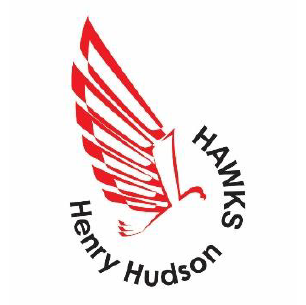Code of Conduct
Code of Conduct - Updated June 2024
Henry Hudson Elementary School
Code of Conduct
Statement of Purpose
The purpose of our code of conduct is to promote the continued success of all learners. Hudson School promotes the values expressed by the BC Human Rights Code respecting the rights of all individuals in accordance with the law: Students shall not discriminate against others on the basis of the race, religion, colour, ancestry, place of origin, marital status, family status, age, sex or sexual orientation, gender identity, or physical or mental disability, or for any other reason set out in the Human Rights Code of British Columbia, nor shall a student publish or display anything that would indicate an intention to discriminate against another, or expose them to contempt or ridicule, on the basis of any such grounds.
The Code of Conduct applies while at school, at a school-related activity or in other circumstances where engaging in the activity will have impact on the school environment.
Hudson Hawk Conduct Expectations:
- be safe
- be mindful
- acknowledge and own actions
- participate in the process of designing and applying strategies as solutions
Acceptable conduct – Students are expected to be safe, accountable, inclusive and supportive towards all learners.
Unacceptable conduct- impacting others in a negative way, the following behaviours cited are examples only and not an all-inclusive list.
- impacting others in a negative way (name calling, pushing, unsafe)
- disrespecting property (personal, school items, school property)
- racism will not be tolerated in our school
Consequences-when students demonstrate behaviour that is unacceptable, a discipline response that is based on learning and restoration (making amends) is implemented. At Hudson we reflect upon our choices, take responsibility for our actions, and make amends through a restorative action plan with consideration of the developmental levels, age, maturity and special needs of students. These expectations apply to behaviour at school, at school-related activities, and in other circumstances that impact the safe, caring and orderly environment of the school.
Examples of levels of dealing with students that impact others in a negative way:
Level 1: sometimes children make mistakes; it's a natural part of the learning process. At times, we aim to acknowledge and learn from these mistakes. Often dealing with it on the spot, with peers and adults using some of the guiding questions.
Level 2: we believe that choices are an important part in a child's development and regrettably, sometimes children make poor choices. When a student presents a repeated pattern of poor choices, admin may become part of the process using the guiding questions with the students individually then together. The goal is to design an age appropriate response and solution through a restorative lens using the guiding questions. The teacher or admin may also request a meeting or call the parent/guardians or vice-versa.
Level 3: Hudson aims to educate the whole child. Sometimes children face conflicts to which they are not equipped or emotionally capable of effectively dealing with. The guiding questions are an opportunity to develop critical thinking skills on how to be part of a solution. It is often during conflict that children act in ways that are inappropriate or unacceptable. Restitution may take place by way of communication between teachers, parents/guardians, students and administration to design the next level of intervention for the student to succeed in school. The teacher or admin may also request a meeting or call the parent/guardians or vice-versa.
Special considerations may apply to students with special needs, if they are unable to comply with a Code of Conduct due to having a disability of an intellectual, physical, sensory, emotional or behavioural nature.
Students are expected to be critical thinkers and reflect. With guidance, students are part of the process when the timing is appropriate.
Process to support students:
Each person impacted has an opportunity to share their view without interruption. Each person may share more than once to add to the story.
(learn the story, acknowledge, and own actions, make amends, apply strategies)
Guiding questions to support students through the process:
- What happened?
- What were you thinking at the time?
- Was it safe?
- How or who did it impact?
- How will you make it right?
- Do you feel safe moving forward? What do you need to feel safe moving forward?
- What strategies will you use moving forward?
Suspensions – In accordance with the School Act, Sec 85(2)(ii) and (d), the Board authorizes the Principal or designate of any school in the district to suspend a student from attendance at school for up to five days. Suspensions may be for the following reasons:
- because a student is willfully and repeatedly disrespectful to a teacher or to any other employee carrying out responsibilities approved by the Board.
- because the behaviour of the student breaches the District Code of Conduct or policy and/or has a harmful effect on others or the learning environment of the school.
- because the student has failed to comply with the School Code of Conduct.
It may be necessary to advise other parties of serious breaches of the Code of Conduct. When possible and appropriate, the focus of consequences will be restorative rather than punitive. Special considerations may apply to students with special needs if they are unable to comply with the Code of Conduct due to having a disability of an intellectual, physical, sensory, emotional or behavioural nature.
The severity and frequency of unacceptable conduct, as well as the age and maturity of students are considered when determining appropriate disciplinary action.
Suspensions over five days are made in consultation with the appropriate Director of Instruction as per District Student Code of Conduct, AP 350. As per AP 350 6.7.1 an educational program must be provided.
Code of Conduct reviewed October 2020.

